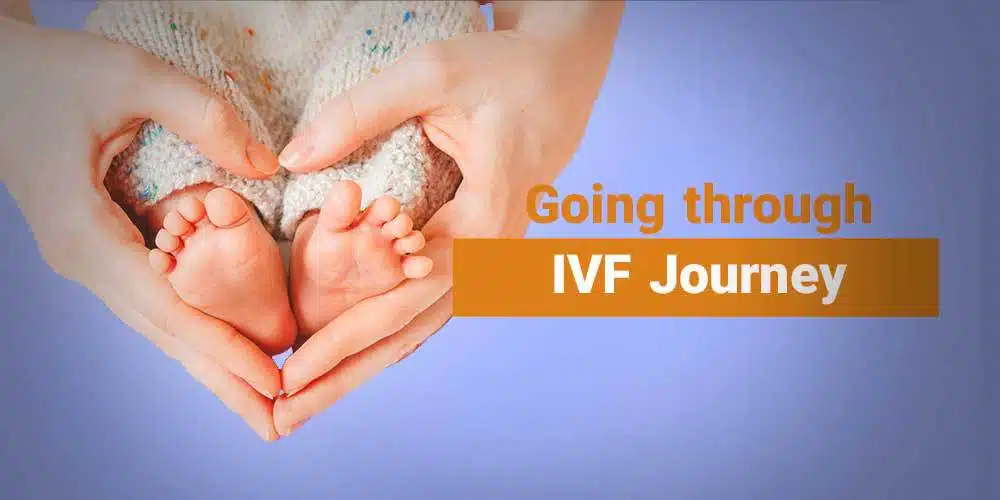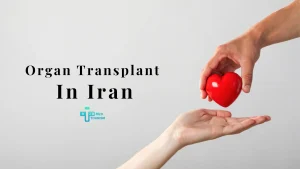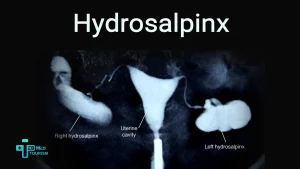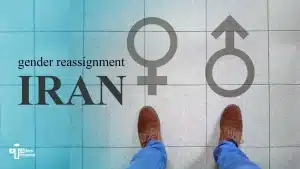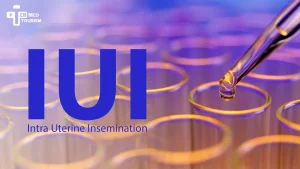Just recently, you have learned that you need to undergo a type of assisted reproductive technology, specifically IVF, in order to have your own baby. When such extra help is suggested to infertile couples, it’s essential for them to gain a clear understanding of the stages of IVF to balance their hopes and expectations. In fact, the IVF procedure is like stepping onto a new path and beginning an adventurous journey toward a joyful destination. And what destination could be more joyous than holding your own baby?
IVF, with all its positive and negative aspects, is one of the last resorts for infertile couples who want to experience pregnancy and become parents. However, it is crucial for them to be fully aware of what will happen during the IVF process and how they can prepare for this complex treatment. TebMed Tourism is here for you!
We will guide you through each stage of IVF, from pre-IVF tests, medications, and diet, to egg retrieval and the days following embryo transfer, shedding light on this life-changing event.
IVF journey step by step
The IVF journey in Iran involves several steps, which are explained day by day in the following sections.
Pre-operative Procedures
Before starting the IVF cycle, certain tests are required for both women and men. The necessary tests for women include general and hormonal lab tests, as well as an ultrasound of the uterus and ovaries to assess the woman’s physical and hormonal condition. Men also need to undergo specific tests, including viral lab tests (hepatitis B & C, HIV, etc.) in addition to sperm analysis.
Menstruation Cycle Day by Day
In this section, we explain how the menstruation cycle progresses during an IVF process, day by day.
- Day 1: You will visit your fertility specialist for an ultrasound at the clinic. Your doctor will determine a treatment plan and prescribe medications with customized dosages, which may depend on factors such as age, weight, and height.
- Day 2 to Day 8: Medication should be started and continued until Day 8.
- Day 8: Your fertility specialist will perform an ultrasound of your ovaries to check the size of the follicles and adjust the dosage of the medications if needed.
- Day 11: A clinical ultrasound will be conducted for a final check and to determine the exact day for egg retrieval.
- Days 14 to 16: Depending on the ovaries’ response to the medication, egg retrieval will take place, and the male partner will provide sperm. Then, the IVF process will be carried out to form embryos.
- Days 14 to 17: The embryos will grow in a laboratory environment. If the parents request sex selection or embryo screening, the embryos will be evaluated on Day 17 using PGD/PGS methods.
- Days 17 to 18: The embryos will be transferred to the mother’s uterus with the hope of successful implantation and a healthy pregnancy.
- Days 31 to 32: A blood test will be conducted to check for pregnancy. This test can be repeated two days later to confirm the results.
How Long is the IVF Journey?
The IVF process typically takes about 6 to 8 weeks, from the initial consultation to receiving the pregnancy test result. However, this period can vary depending on the specific circumstances of each couple. Some people may need to repeat the IVF cycle until they achieve a successful result, as the chances of pregnancy through IVF can differ for everyone. Before starting the cycle, TebMedTourism’s medical consultants and fertility physicians will discuss the best treatment plan for you.
Who Can Be an IVF Candidate?
IVF is a treatment for infertility and can help couples who are aware of their genetic disorders and wish to avoid passing them on. IVF is often one of the last options for women over 40 who want to have a healthy baby. It can also be an option if either the male or female partner is suffering from:
- Male Factor Infertility: This includes abnormal sperm production, low sperm count, sperm delivery blockages, or poor sperm mobility.
- Ovulation Disorders: Issues with the production of eggs during monthly cycles, typically marked by irregular or missed periods.
- Fallopian Tube Problems: If the female partner’s fallopian tubes are blocked or missing, it becomes difficult for eggs to be fertilized.
- Pelvic Inflammatory Disease (PID): An infection of the reproductive organs that can cause scar tissue, making it difficult to conceive.
- Endometriosis: A condition where tissue similar to the uterine lining grows in other areas, such as the ovaries or fallopian tubes, affecting fertility.
- Tubal Ligation: A surgical procedure that blocks or cuts the fallopian tubes to prevent pregnancy. IVF is an option for women who want to conceive after this procedure.
- Unexplained Infertility: Some couples don’t have a specific infertility diagnosis, but after extensive testing, no clear cause can be found.
It is important to note that IVF is not a guarantee for everyone. Even the most favorable candidates may require multiple IVF cycles to achieve a successful pregnancy. Fertility specialists do not promise success, as the outcome varies for each individual.
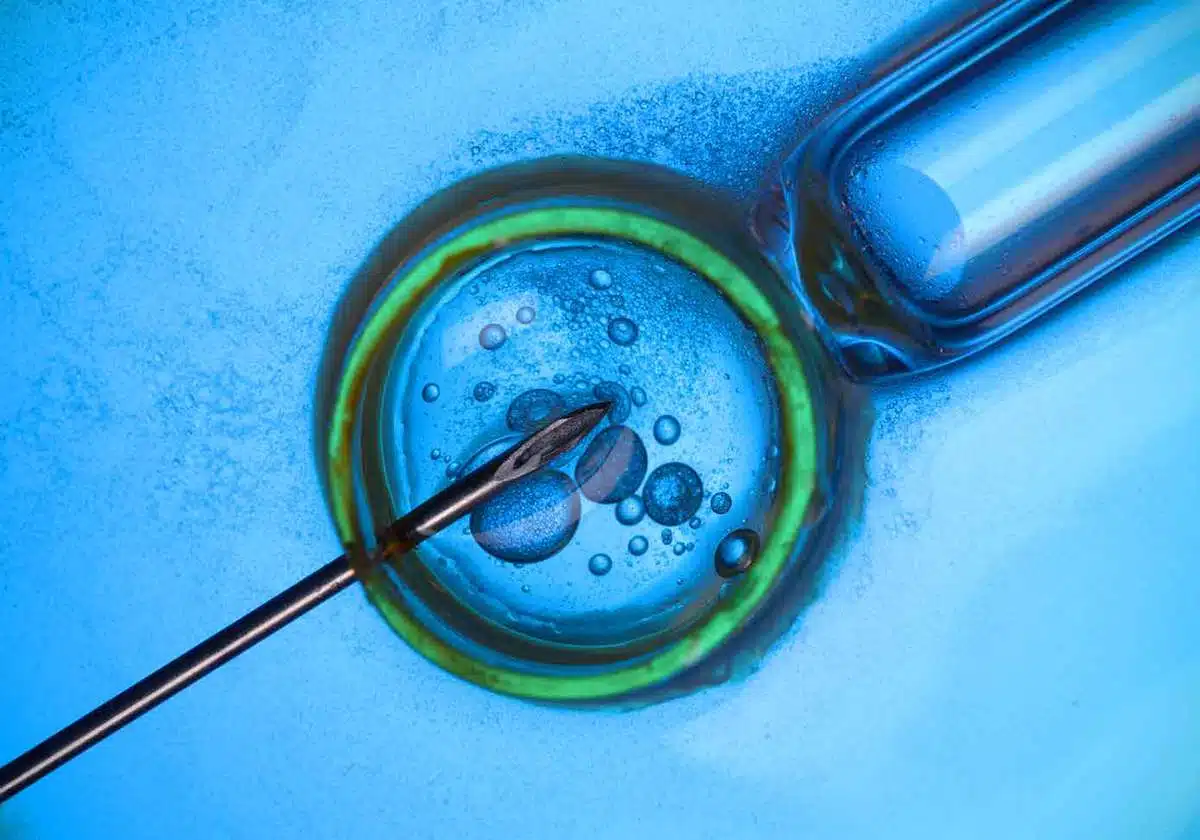
How Does IVF Work?
In a general sense, IVF consists of several stages. After using specific medications, some eggs are retrieved from the woman’s ovaries and then fertilized by the man’s sperm in a lab. Finally, the selected embryos are transferred to the woman’s uterus, where pregnancy occurs. Normally, one full IVF cycle takes about 2 to 3 weeks. IVF is an expensive medical procedure due to its complex and specialized stages. Professional fertility specialists explain the entire procedure, including its pros and cons, to infertile couples so they can embark on this journey with awareness. Now, let’s review the procedure step by step:
Pre-IVF Preparation
IVF is a long journey, and you need to prepare yourself both physically and emotionally. Here are some tips for preparing your body for the upcoming treatment:
- Eat a well-balanced diet.
- Maintain a healthy weight.
- Take the prescribed vitamins.
- Avoid smoking and alcohol.
- Reduce caffeine intake.
- Practicing yoga and meditation.
- Sharing your thoughts with loved ones.
- Joining an infertility support group.
- Engaging in prayer or other ritual practices.
It is important to ask as many questions as you feel necessary to your doctor. Some fears about IVF arise from uncertainty about the procedure, its success rate, and potential side effects. Your fertility specialist will schedule blood tests before starting IVF to assess your follicle-stimulating hormone levels, which indicates the quality and quantity of your eggs. Blood tests can also identify any incompatibilities between the parents’ blood types. Additional common blood tests include screening for HIV, Hepatitis B, Hepatitis C, Syphilis, and genetic testing. Shortly before IVF begins, your fertility specialist may conduct a semen analysis. A mock embryo transfer is also recommended to determine the depth of the uterine cavity, and an ultrasound will be used to examine the uterine lining.
During IVF
Once initial tests and screenings are successfully completed, the main stages of IVF begin. These stages usually take about 2 to 3 weeks and are considered one full IVF cycle.
Ovarian Stimulation
The first step in the IVF procedure involves using hormones to stimulate the ovaries to produce more eggs than the one that normally matures each month. There are several medications used to induce multiple eggs, such as menotropins, FSH, clomiphene, GnRH analogues, etc. These daily hormone injections (2-3 medications each night) continue for about 10 days. During this time, you will need to visit your doctor several times for ultrasound scans and blood tests to monitor when the eggs have matured enough to be collected.
Egg Retrieval (Follicular Puncture)
Once the ovarian stimulation is successful and the follicles are ready to be retrieved, a final “trigger shot” injection is given to help the ovaries release eggs within 24-36 hours. Your fertility specialist will schedule a day for the Egg Retrieval Process at the IVF clinic. The patient will be sedated during this procedure, and a thin needle will be inserted through the vagina using ultrasound guidance to collect the eggs. The mature eggs will be placed in a culture dish and incubated. The husband’s sperm sample should be ready at the clinic on the day of egg retrieval.
In Iran, sperm donation is illegal, so infertile couples must use the husband’s sperm or a donated embryo. In the fertilization step, each healthy and mature egg is fertilized by a single sperm, which is separated from the semen sample in the lab. 5 to 7 days after fertilization, when the eggs have developed into blastocysts, they may be tested for preimplantation genetic testing (PGT). This testing determines which blastocysts are genetically normal.
Embryo Transfer
Five days after egg retrieval, the selected embryo will be transferred into your uterus using a catheter. This process is painless. Nine to ten days after the egg retrieval, if everything goes well, the embryo will implant in the lining of the uterus. About two weeks after egg retrieval, your doctor will schedule a blood test to confirm the pregnancy.
After the IVF Procedure
Although embryo transfer is an easy procedure, there are some aftercare steps that can increase the chances of a successful pregnancy. These include:
- Taking prescribed medications on time.
- Avoiding sex until the pregnancy test result is confirmed.
- Avoiding contact with sick individuals.
- Staying hydrated and eating a balanced diet.
- Avoiding heavy exercises.
- Avoiding exposure to chemicals and radiation.
If your IVF cycle is successful and the pregnancy test confirms the result, you will be referred to an obstetrician to continue your pregnancy and receive maternity care.
This process seems complex, but TebMedTourism’s expert fertility specialists and medical team are here to assist you through each step. The IVF journey in Iran is a hopeful one, filled with scientific expertise, legal support, and a compassionate team dedicated to your dream of becoming a parent.







